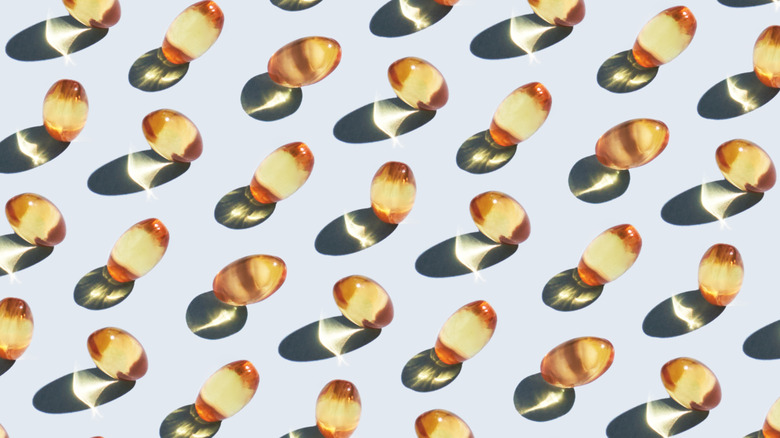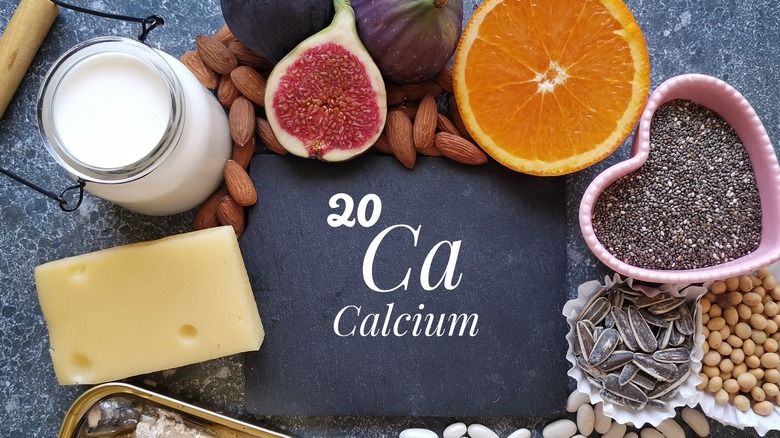Vitamin Supplements You Need If You're Dairy Free
While opting for a whole food diet can help your body receive all of the vitamins and minerals it needs to thrive, some nutrients move up the list when a dairy-free lifestyle is the diet of choice. Whether you're lactose intolerant or just not a fan of dairy, you may need to be more mindful when it comes to finding plant-based options for nutrients commonly found in milk, cheese, and yogurt.
According to WebMD, there are 2 nutrients in particular that you should make a priority in your diet if you don't consume dairy: vitamin D and calcium. In this article, we'll take a look at each of these to discover why they're so important, how much you need, and where to get it outside of popping a pill or gummy. As a result, you'll feel totally equipped to find vitamin D and calcium options that easily fit your lifestyle and routine.
Calcium for dairy-free diets
MedicalNewsToday states that calcium is a mineral every living organism needs. For humans, it's vital for the health of strong bones and teeth. In fact, the National Institutes of Health's Office of Dietary Supplements said over 99% of the body's calcium is stored in our bones and teeth. Aside from bones and teeth, calcium also helps with muscle contraction, maintains cardiovascular health, and can provide improved cholesterol values.
Adults need 1,000mg of calcium every day, and that number increases to 1,200mg for women who are age 51 or older. Men don't need that much until they're 71 years old.
Unhealthy lifestyle habits like eating disorders, overusing laxatives, eating too much protein or sodium, and drinking a lot of caffeine or alcohol can result in low calcium levels. Other issues that may not necessarily be in your control like cancer, kidney failure, pancreatitis, Crohn's disease, or celiac disease, can also result in calcium deficiency.
Non-dairy sources of calcium include tofu, green leafy vegetables, fortified breakfast cereals, fortified fruit juices, nuts, almonds, sesame, chia seeds, legumes, grains, cornmeal, and corn tortillas.
Vitamin D for dairy-free diets
Contrary to its name, vitamin D isn't actually a vitamin (per Johns Hopkins Medicine). Vitamin D is actually a hormone the body uses to absorb calcium. The immune system also relies on vitamin D in order to respond when prompted. While the human body doesn't make vitamin D on its own, per Healthline, the skin produces it after being in the sun. The recommended daily allowance of vitamin D for adults is 600 IU. This amount increases to 800 IU after age 70.
According to the Cleveland Clinic, signs of vitamin D deficiency include mood changes, bone loss, muscle cramps or weakness, bone and joint pain (especially in the back), and fatigue.
Healthline also states that there are 2 types of vitamin D. Vitamin D3 is known as cholecalciferol and it comes from animals. Vitamin D2 is known as ergocalciferol and it comes from plants. Live Kindly says portobello, maitake, morel, button, and shiitake mushrooms are great sources of vitamin D2 — especially if you let them sit in direct sunlight. Fortified plant-based milk, tofu, and orange juice are also recommended.



